After Burundi withdrawal from the African Union summit in Kigali, the reasons given by the Government are not convincing enough and questions are still persistent.
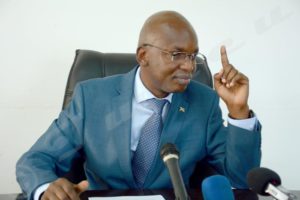
Alain Aimé Nyamitwe: “It is a choice made conscientiously. “
“We decided not to participate in the Executive Council and the Conference of Heads of States on two grounds,” said Alain Aimé Nyamitwe, the head of the Burundian diplomacy. He gave the reasons for the withdrawal of Burundi from the AU summit in Kigali. Indeed, while the 27th summit of AU Heads of States opened Sunday, July 17, Bujumbura decided to pull out. Rumors were then rife to explain the reasons for the withdrawal. The most persistent was that the summit would review the question of deploying an African peacekeeping force in Burundi to protect the population.
What is certain is that the mediator in the Burundian crisis, former Tanzanian President Benjamin Mkapa had gone to Kigali to present the roadmap resulting from the second round of the Arusha talks II to the EAC presidents. A second session that the government delegation was accused of having boycotted. “The first reason is that Burundi wanted to give a message to the Commission of the African Union that turned a deaf ear to legitimate requests of our government. “He here points to Rwanda that the Burundian government accuses of interfering in Burundi insecurity.
Mr. Nyamitwe recalls that these requests were transmitted and expressed repeatedly through direct contacts between the Government of Burundi and the President of the AU Commission
Deaf ear and security
The second reason, according to Mr. Nyamitwe is that Bujumbura asked to have security guarantees for the ministerial and presidential delegations in Kigali. “These guarantees never came, so we felt that it was perhaps not wise to participate in such a high level meeting as these guarantees were not given”. Especially that the uncomfortable security situation in Burundi is directly related to the actions of the Rwandan government. Yet, a Burundian delegation attended a session in Kigali on the sidelines of the summit, before packing their bags: “It’s a choice we made consciously to show our good faith.” Prior to the summit, the Burundian government, through its spokesperson and secretary general, had reassured its participation. For Philippe Nzobonariba, Burundi would respond to the AU invitation and not that of Kigali, saying that a delegation of Burundian experts was already in the Rwandan capital in preparation for the said summit. As for the security of the Burundian delegations on Rwandan territory, Mr.Nzobonariba used the Kirundi adage that “He who wants to test a wizard entrusts him his child”.
An unjustified absence …
On the Rwandan side, Louise Mushikiwabo,the foreign affairs minister said in a press conference Tuesday, July 19, that the reasons for Burundi withdrawal were still unknown to Kigali.
“It’s a loss for Burundi not to have participated in the activity of this summit that addressed important issues for the country and the continent. But AU loses nothing “ According to Smail Chergui, the AU Commissioner for Peace and Security, the summit decided to continue to seek the solution to the Burundian crisis by sending experts in Burundi and supporting the inclusive dialogue. “We also talked about Burundi and what is happening there. Starting with the ongoing killings, the violation of human rights, the collapsing economy and the ongoing refugee flows. “Ambassador Chergui recalled that a delegation of Peace and Security Council recently came to Burundi and looked at two aspects.
“First how we can send experts to assist the victims, but also military experts. That’s then how we can support an inter-Burundian inclusive dialogue as the only true way to find political solutions to the current crisis in Burundi. ”
Reactions
Reactions were quick. Some even occurred before the explanations of the head of the Burundian diplomacy.
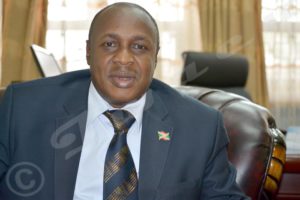 “Burundian authorities decided to boycott the summit to perhaps challenge the decisions considered adverse to the country and people of Burundi,” said Jacques Bigirimana, the FNL party chairman. According to him, all decisions taken against them and in their absence do not concern them.
Tatien Sibomana, the spokesman of UPRONA party which is not officially recognized by the government, considers this pull out as an irresponsible act. For him, it was not the time for an illegitimate government to keep isolating itself. “The de facto Bujumbura institutions would have been humble and seized the opportunity to create openings.”Sibomana finds that Burundi lost a lot in terms of visibility and credibility in the alliance of nations, especially when the summit focused on Burundi.
“Burundian authorities decided to boycott the summit to perhaps challenge the decisions considered adverse to the country and people of Burundi,” said Jacques Bigirimana, the FNL party chairman. According to him, all decisions taken against them and in their absence do not concern them.
Tatien Sibomana, the spokesman of UPRONA party which is not officially recognized by the government, considers this pull out as an irresponsible act. For him, it was not the time for an illegitimate government to keep isolating itself. “The de facto Bujumbura institutions would have been humble and seized the opportunity to create openings.”Sibomana finds that Burundi lost a lot in terms of visibility and credibility in the alliance of nations, especially when the summit focused on Burundi.
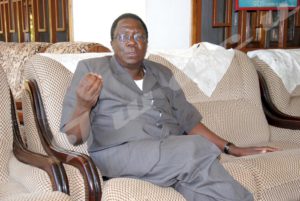 Ntibantunganya, the Former Burundi President does not understand how the government of Bujumbura missed such a meeting which was rather a good opportunity to defend its positions. And he wonders: “I have serious questions over the underlying reasons why the government of Burundi boycotted the summit”.
Ntibantunganya, the Former Burundi President does not understand how the government of Bujumbura missed such a meeting which was rather a good opportunity to defend its positions. And he wonders: “I have serious questions over the underlying reasons why the government of Burundi boycotted the summit”.
For Léonce Ngendakumana, the new FRODEBU party vice-president, “there is no reason the government of Burundi that established itself by violating the Constitution can give to explain the fact of not having represented Burundi and Burundians in a summit that brought together more than 50 states.
It is a political suicide demoralizing the population that may feel abandoned, he insists”. The security-based motive does not hold, for, according to him, Burundi is not safer than Rwanda.
“This reaction ashamed the country and Burundians and does not help the situation because it will have adverse consequences especially for the Burundian population “.
Leonce Ngendakumana thinks that” this solitary behavior of Burundian authorities will reinforce the distrust of the international community towards Burundi.” Pancras Cimpaye, the spokesman of the opposition platform CNARED fears that the African Heads of States support Pierre Nkurunziza, considering the contempt of the Burundian government delegation, slamming the door to the AU Summit in Kigali, while it had just boycotted the second session of the Arusha dialogue. “It is incomprehensible that this summit does not address the issue of Burundi and, the lack of interest of Africa in resolving Burundi crisis disappoints CNARED a great deal “.
According to Mr. Cimpaye, the CNARED wished sanctions such as arms embargo, could be imposed against Bujumbura, or that the summit would decide to send an African force to protect the people of Burundi.
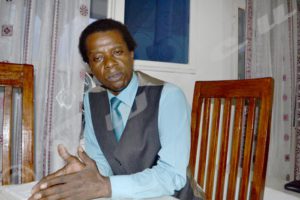 Audifax Ndabitoreye, former chief of Burundi intelligence service and chairman of Revolution Haguruka party indicates that the Burundian delegations wouldn’t be invited to the summit if Kigali were not sure about their security.
Audifax Ndabitoreye, former chief of Burundi intelligence service and chairman of Revolution Haguruka party indicates that the Burundian delegations wouldn’t be invited to the summit if Kigali were not sure about their security.
He then thought that such a summit would be an opportunity for Bujumbura to defend its position and organize lobbies. For him, the Burundian government sinned by arrogance.
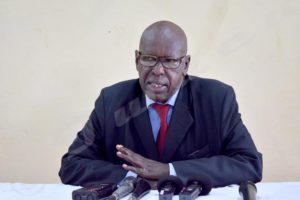 “This withdrawal is a lack of political personality, and God’s promise to rescue Burundi is at hand,” he warns.
“This pull out is not catastrophic, these are things that happen from time to time, the important thing is for Burundi not to leave the AU but maintain contact with the union,” reassures Cyprien Mbonimpa, former Ambassador and foreign affairs minister. Usually, he says, when there is a problem within an organization to which one belongs, it is better to participate in its meetings to provide explanations to other members, especially seeking support. “Even though pulling out is not disastrous in itself, it is better to stay.”
“This withdrawal is a lack of political personality, and God’s promise to rescue Burundi is at hand,” he warns.
“This pull out is not catastrophic, these are things that happen from time to time, the important thing is for Burundi not to leave the AU but maintain contact with the union,” reassures Cyprien Mbonimpa, former Ambassador and foreign affairs minister. Usually, he says, when there is a problem within an organization to which one belongs, it is better to participate in its meetings to provide explanations to other members, especially seeking support. “Even though pulling out is not disastrous in itself, it is better to stay.”
Analysis
For many observers, the two reasons are not objective. As Bujumbura was unhappy with AU inaction about the complaint by the Government of Burundi against Rwandan interference in Burundi insecurity, it was then an opportunity to express, even denounce it to the AU commission. Regarding security, as Léonce Ngendakumana says, Rwanda is undoubtedly not a less safer country for Burundian delegations than living in Bujumbura. To date, we do not know the real reasons for Burundi withdrawal from AU summit if we call into question those supplied by the Burundian minister of external relations. But we can assume that this withdrawal is linked to Burundi’s participation in the meeting of the committee of permanent representatives. Indeed, the government spokesman had assured that Burundi would participate in the summit.
Logically, after participating in the activities of the committee of permanent representatives, certainly not by good faith and by withdrawing from the rest of the sessions, the Burundian delegation showed that the ministers’ meeting and the summit of Heads of States would not go in the sense sought by Burundi and that, that there are clear trends against the position of Bujumbura. It is to avoid getting slapped on the wrist in its presence that the delegation has probably decided to leave Kigali
One fact is obvious, if Burundi had convinced participants in this session of the committee of permanent representatives, it wouldn’t have pulled out from the rest of the sessions, because its position would be strengthened and supported by other states. But, unable to convince them, the Burundian government wanted to set a precedent hoping that it would use it whereas it is the opposite that might happen. In any case, the attitude and behavior of its delegation showed the international community the “originality” of Burundian politicians. The question here is whether this withdrawal is a reaction of pride or a sign of political immaturity … However, as explained by Ambassador Cyprien Mbonimpa, each member of an organization like the AU has the right to disagree. But in the context of Burundi crisis, the government had to mature reactions if it is really of” good faith”. What is most amazing is that even the opposition that considers illegal the government of Bujumbura still wished the latter would have been present at the summit to represent Burundi…


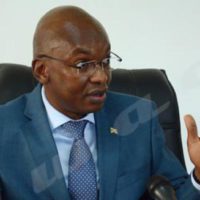













 IWACU Open Data
IWACU Open Data

